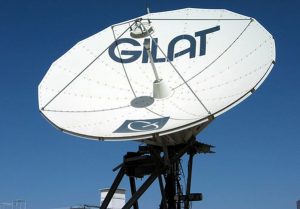
Israel’s Gilat is becoming a major presence in the Latin American telecommunications market after it announced a deal with Hispasat, the Spanish satellite communications operator, to help commercialise Hispasat’s Ka-band satellite capacity over Brazil.
Gilat and Hispasat will work together to develop the satellite broadband market in Brazil. Hispamar will utilize the recently launched AMAZONAS-5 multi-spot-beam Ka satellite capacity, as well as AMAZONAS-3 Ka capacity, while leveraging Gilat’s SkyEdge II-c multi-service platform, versatile Very Small Aperture Terminal (VSAT) equipment, Network Operation Center (NOC), and field support services.
This partnership has an estimated potential revenue of tens of millions of dollars over a period of several years. The contract enables Hispamar, a Hispasat subsidiary, to deliver consumer broadband and enterprise services to local Internet Service Providers (ISPs) and offer quality access to the Internet throughout the country, even in remote areas, thus reducing the digital divide and promoting regional development.
“We are pleased to expand the scope of our longstanding relationship with Gilat, to now enter into this partnership for the delivery of broadband services over satellite to the people of Brazil,” said Ignacio Sanchis, chief commercial officer at Hispasat. “Gilat has proven the superiority of its HTS [High Throughput Satellite] platform and we are confident that Gilat’s leading technology and services will provide Hispamar with a competitive edge for successful service expansion throughout Brazil. With this joint effort, we will bring high quality connectivity to any point in the country and open the doors to digital world to the people living there.”
Ron Levin, Gilat’s vice president for mobility and global accounts, added “Hispasat’s widespread Ka HTS capacity across Latin America is the perfect fit for materialization of Gilat’s vision and commitment to deliver quality, plentiful and affordable broadband to unserved and underserved areas in Brazil and in the region.”





